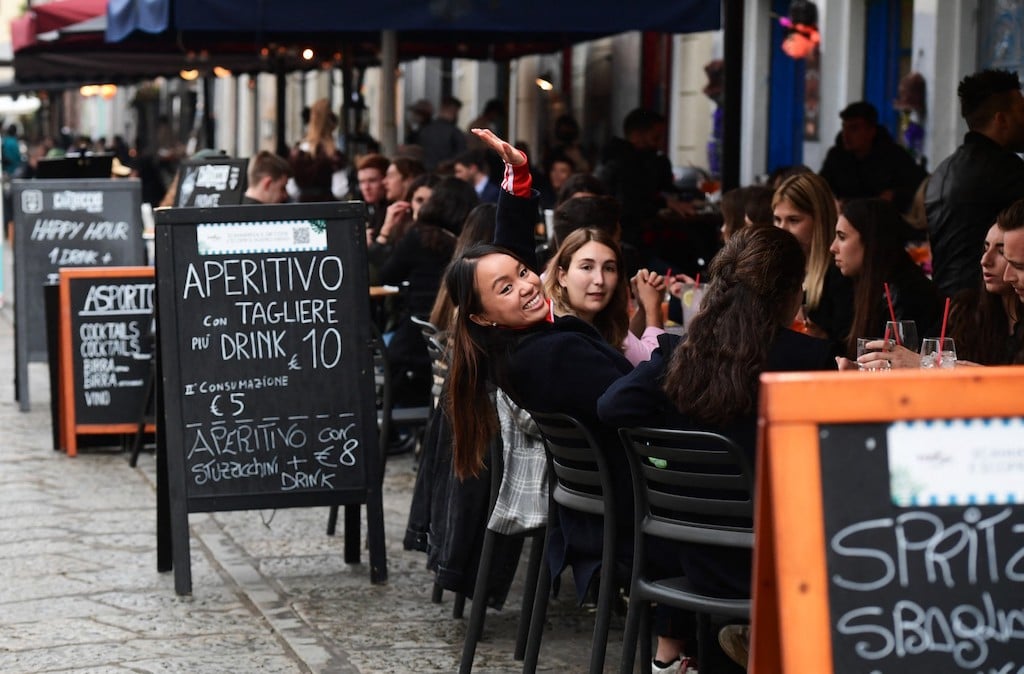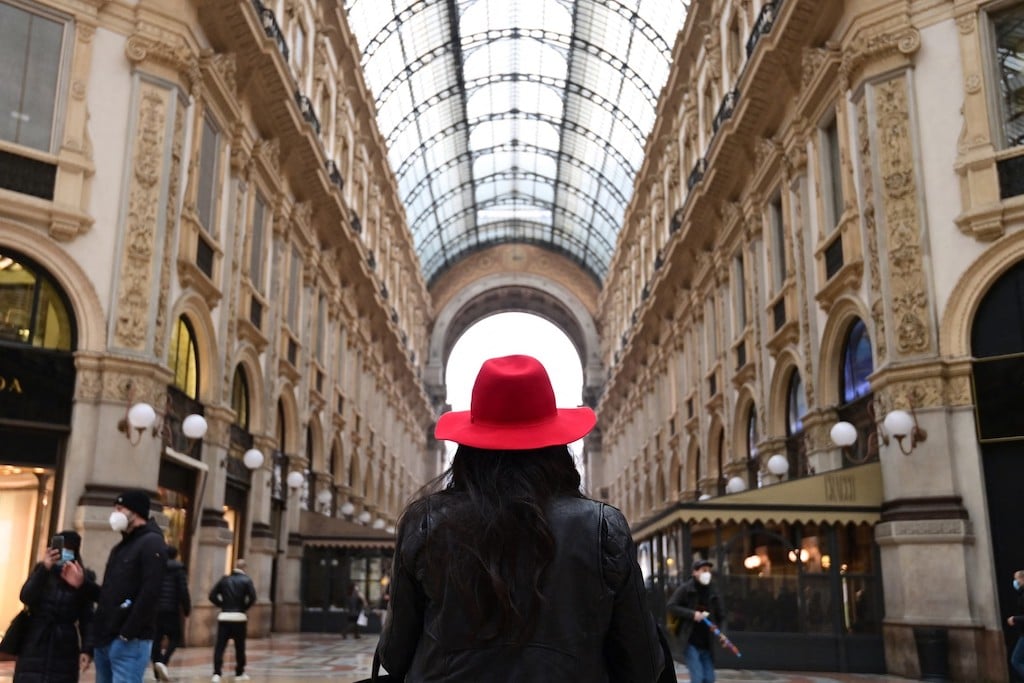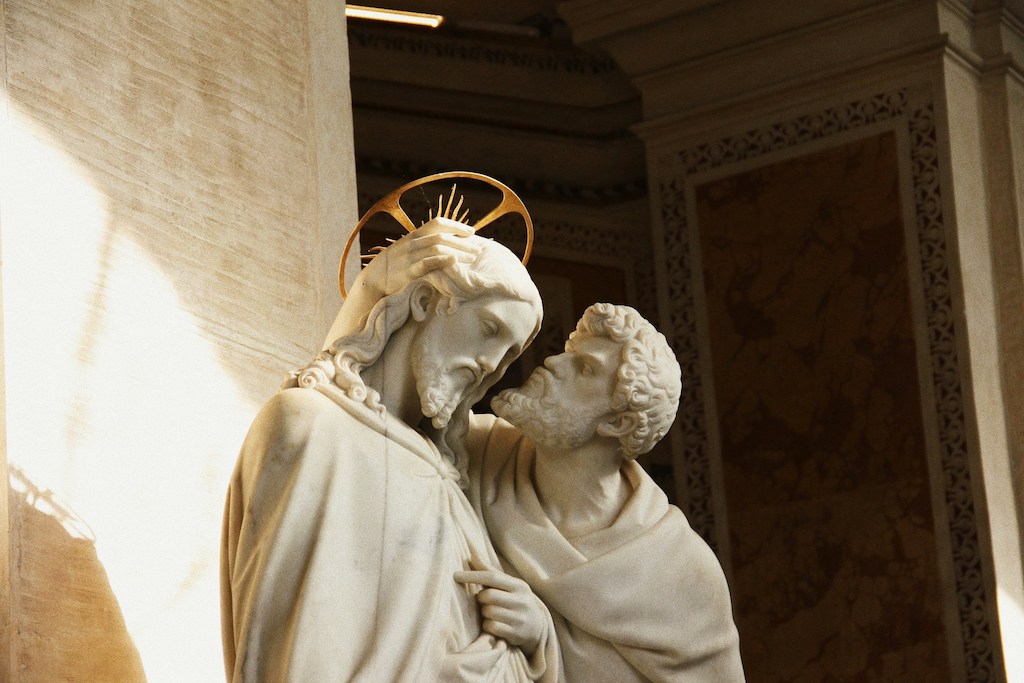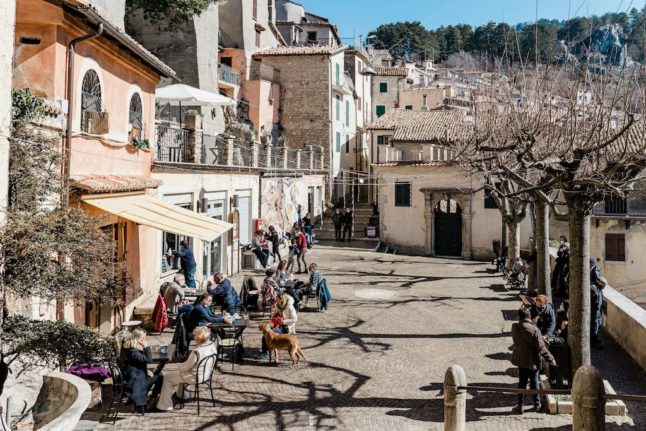Moving to a new country usually means assimilating in one way or another – whether that comes down to language, dress codes or culinary norms.
In our recent survey on the topic, the overwhelming majority of respondents (53 people in total) said they had tried to make themselves more Italian to fit in to life in Italy.
Wardrobe choices, eating habits and communication style were some of the areas that came up most frequently when readers discussed changes they’d made in order to integrate into Italian society.
Most people said they had made a conscious decision to fit in, and many considered doing so a key sign of respect for Italian culture.
“It’s important to embrace and contribute to everything good about where you choose to live. It’s an amazing country and I want to be respectful of traditions and customs,” said Catherine Harding in Mugello, Tuscany.
READ ALSO: ‘How we left the UK to open a B&B in a Tuscan village’
“The idea of living in Italy and remaining staunchly American is offensive to us. Noticing and adapting to local customs and culture helps us understand who Italians are and why they are the way they are,” said Robert Hollis in Trentino.
Others say the changes they made were less intentional.
“It just happens by osmosis I think,” said Grainne Dixon in Verona.

“I haven’t consciously tried but obviously after being here a while and speaking the language every day some mannerisms and hand movements become part of my being.”
For many, integrating required a concerted effort at first, but eventually came naturally.
“At first, it was a desire to understand. Now, 14 years later, it’s part of a cultural routine and being a bit more connected to normal life in Italy,” said Carrie in Trieste.
“Initially it was done mostly to blend in, but then becomes a habit,” echoes Bardhan in Venice.
Some said they particularly appreciate Italian culture, and the process of assimilating was enjoyable for them.
READ ALSO: INTERVIEW: ‘Americans live to work, Italians know how to balance’
“I was so impressed with the aspects of Italian life I wanted to incorporate them into my own, whether in Italy or back home,” said Morag in Liguria.
Others took a more pragmatic view.
“I did not want us to stick out from the crowd because you do get treated differently but also because it made life easier,” said Molly Coumes, who lived in Pozzuoli, Campania in the mid ’90’s and from 2017-2021.
“My life here would be difficult and unpleasant, for myself and others, if I didn’t adapt,” agreed Neil Ollivierra.
‘Less processed food’
A large number of readers commented that their eating habits – both in terms of what they consume as well as how and when – had changed since moving to Italy.
“Diet is a huge one: this needs little explanation,” said Darlene in Castellina in Chianti, who notes that she eats meals at a later time in Italy than she would back home.
“Less processed food, fewer spices to cover the flavour of the world. Also buying produce weekly at the open markets,” she added.
Morag in Liguria says she appreciates “spending more time over meals and gatherings, less eating on the hop,” while Philip Allega agrees that he would now “avoid eating on the go”.
READ ALSO: Dressing up and slowing down: The unwritten rules of an Italian Sunday lunch

Robert Hollis and his wife in Trentino also appreciate the more leisurely pace of meals, adding that they “particularly enjoy the extended period of conversation during meals” when out to dinner with Italian friends.
More than one respondent mentioned Italian coffee culture.
“Need my espresso in the morning and after lunch,” says Italy resident Paige, while Jeremy Poole in Città di Castello, Umbria says he has changed coffee consumption habits “(never cappuccino after 11)”.
READ ALSO: Where, when and how to drink coffee like an Italian
‘Shoes must be immaculate’
Numerous readers talked about having made changes to the way they dress and their overall appearance since moving to Italy.
Several respondents talked about transitioning to a more subdued wardrobe in order to blend in.
“We dress more like our Italian neighbors in darker colors,” say Peter and Marsha in Città di Castello in Umbria, while two other readers also noted that they had switched to more neutral tones.
READ ALSO: Life in Italy: ‘How our shopping habits have changed since we moved from the US’
Morag in Liguria, by contrast, said she appreciated the Italian custom of “dressing flamboyantly at any age” – going to show that sartorial norms vary widely around the country.
Near-universal, though, was the impression that Italians hold both themselves and others to a higher standard than most when it comes to dress sense, with many readers saying that moving had prompted them to take greater care of their appearance.
Cameron in Lucca says they have “definitely increased attention to the condition of my clothes (ironed, clean, matching colors).”

“I’ve learned so much about beautiful Italian fashion and have incorporated that into my wardrobe,” says Molly Coumes.
“I now wear more simple yet refined pieces like lightweight cashmere sweaters that have a beautiful, easy fit. I definitely elevated my footwear and do not wear gym shoes everywhere. Shoes must be immaculate and complete your outfit.”
“I dress more Italian-like,” says Roberto Rozzoni. “I just appreciate how Italians dress!”
Kate in Piedmont says she will “no longer wear flip flops out in the city after an old lady asked me if I thought I was at the beach,” and has stopped leaving the house with wet hair.
“I replaced my entire wardrobe, changed my hairstyle, and have adopted as many lifestyle behaviors as possible. My goal is to fit in rather than stand out,” says Brent Pye in Padua.
‘Less rushed and more polite’
Communication – both verbal and physical – was viewed by many readers as key to fitting in.
Alison Honor in Alberobello, Puglia says she has started “kissing people on both cheeks when you meet them” as well as “using my hands to express things when I speak.”
Stephanie Mather in Umbria says that becoming fluent in Italian has been key to integrating, and says she also uses “some hand signals” when talking.
One anonymous respondent in Turin said they were “less rushed and more polite with the language form used.”
Catherine Harding in Mugello, Tuscany says she is “more relaxed as not everything/everybody is on time and regulations are not always followed.”
READ ALSO: Does Italy really offer the perfect work-life balance?

And Winnifred Cozijn in Polinago, Emilia-Romagna agrees she has learned to “be patient and talk with others while waiting.”
Meanwhile Molly Coumes said she has “learned the art of negotiating whether it’s with a market vendor or with the landlord. You must not let either of you lose face during the deal and both be happy with the outcome.”
‘Fear of being judged’
While the majority of readers were happy about the adjustments they’d made to fit in in Italy, some saw a darker side to the process.
Kate in Piedmont said the changes she’d made, which included no longer “internally swearing at people who double park,” were the result of “attrition” and part of an effort “not to embarrass my Italian husband, kids and in laws, combined with a growing fear of being judged.”
And an anonymous respondent in Tuscany’s Florentine hills said they were uncomfortable with the fact that many Italian workers wanted to be paid under the table to evade taxes.
READ ALSO: ‘It’s crazy’: What to expect when you work for an Italian company
“In America it’s simple. I hire someone to do the work, they give me an invoice right away, I pay it, then they pay their taxes. I pay mine,” they said.
“To not rock the boat, I need to use their system which I find sad to support.”
Most, however, had a more positive perspective, saying that becoming more Italian has enriched their experience of living in Italy and helped them to integrate locally.
“Learning the language was a huge plus… people respected you more because you took the time to learn,” said Meanwhile Molly Coumes.
“I just feel that conforming to the lifestyle in Italy is much more conducive for us as we integrate into their lifestyle,” sums up Italy resident Dominick.
Jeremy Poole in Città di Castello agrees: “Fitting in to a foreign culture is important if one is going to spend the rest of one’s life there.”



 Please whitelist us to continue reading.
Please whitelist us to continue reading.
Member comments